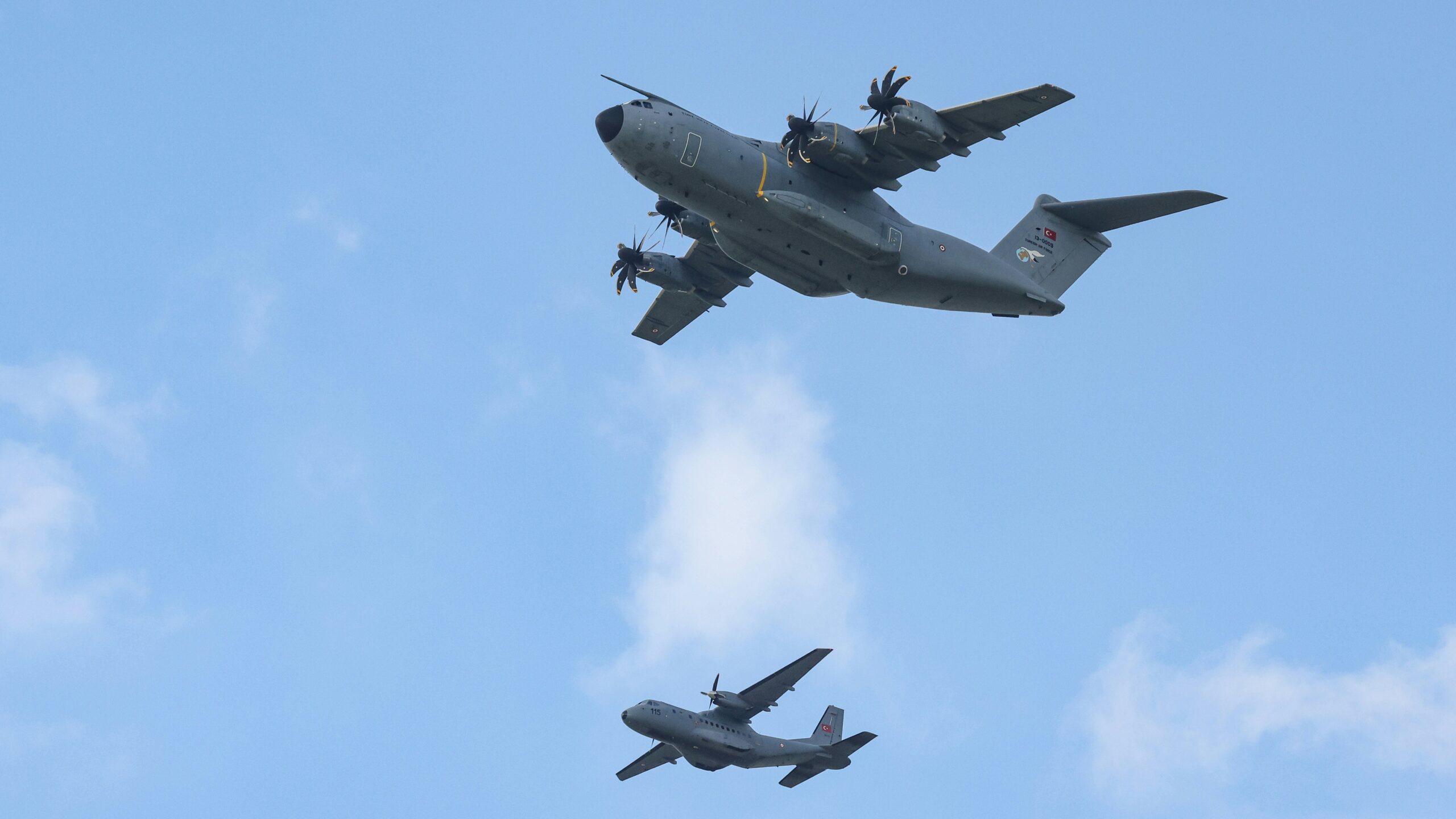“`html
Introduction to the ICJ Ruling
The recent ruling by the International Court of Justice (ICJ) on Israel’s occupation of Palestinian territories has sparked significant international discourse. The ICJ, the principal judicial organ of the United Nations, delivered a judgment that critically examines the legality of Israel’s prolonged occupation. This ruling is a landmark in the ongoing Israeli-Palestinian conflict, as it addresses core issues of international law and human rights.
The context of the ICJ ruling traces back to decades of tensions and intermittent violence between Israel and Palestine. The court’s decision scrutinizes the legal status of the occupation, which has persisted since the Six-Day War in 1967. The ICJ emphasized that the continued settlement activities in the occupied territories contravene international law, including the Geneva Conventions, which govern the conduct of occupying powers.
One of the key points of the ruling is the reaffirmation of the right to self-determination for the Palestinian people. The court underscored that Israel’s policies and practices have impeded the Palestinians’ ability to exercise this fundamental right. Additionally, the ICJ highlighted the illegality of the construction of the separation barrier, often referred to as the “wall,” within the occupied territories, declaring it a violation of international law.
The significance of the ruling lies in its potential to influence international diplomacy and policy-making. It calls upon the global community to address the humanitarian and legal ramifications of the occupation. The ICJ’s decision has been hailed by Palestinian authorities as a critical step towards achieving justice and accountability. Conversely, it has been met with resistance by Israeli officials, who argue that the court’s ruling is politically motivated and undermines their security concerns.
In essence, the ICJ ruling serves as a pivotal moment in the Israeli-Palestinian conflict, highlighting the urgent need for a renewed commitment to international law and the protection of human rights. The implications of this decision are far-reaching, impacting not only the region but also the broader international legal and diplomatic landscape.
Historical Context of the Israeli-Palestinian Conflict
The Israeli-Palestinian conflict is a protracted and deeply rooted struggle that has shaped the geopolitical landscape of the Middle East for over a century. The origins of this conflict can be traced back to the late 19th and early 20th centuries, a period marked by the rise of nationalism among both Jews and Arabs. The collapse of the Ottoman Empire and the subsequent British mandate over Palestine laid the groundwork for the enduring dispute.
One of the earliest and most significant milestones was the Balfour Declaration of 1917, in which the British government expressed its support for the establishment of a “national home for the Jewish people” in Palestine. This declaration intensified the already growing tensions between Jewish and Arab communities. Following World War II and the Holocaust, international sympathy for the Jewish plight culminated in the United Nations’ 1947 partition plan, which proposed the creation of separate Jewish and Arab states. The plan was accepted by Jewish leaders but vehemently rejected by Arab leaders, leading to the outbreak of the 1948 Arab-Israeli War.
Subsequent conflicts, including the Six-Day War in 1967 and the Yom Kippur War in 1973, further entrenched hostilities. The Six-Day War resulted in Israel’s occupation of the West Bank, Gaza Strip, and East Jerusalem, territories that remain central to the conflict. Multiple attempts at peace have been made, notably the Camp David Accords in 1978 and the Oslo Accords in the 1990s. While these agreements facilitated some progress, they ultimately failed to resolve core issues such as the status of Jerusalem, Palestinian statehood, and the right of return for refugees.
International organizations and countries have played pivotal roles throughout the conflict. The United Nations has passed numerous resolutions, while the United States, European Union, and regional powers have intermittently mediated peace efforts. Despite these interventions, a lasting resolution remains elusive, perpetuating a cycle of violence and political deadlock. Understanding this historical context is crucial for comprehending the complexities of the current situation and the persistent calls for an end to Israel’s occupation.
Palestinian Response to the ICJ Ruling
The recent International Court of Justice (ICJ) ruling has elicited a strong reaction from Palestinian leaders and the wider community. Key figures like Palestinian President Mahmoud Abbas have hailed the ruling as a significant milestone in the struggle against what they term as Israel’s illegal occupation. Abbas emphasized that the ICJ’s decision reaffirms the international community’s recognition of the Palestinian right to self-determination and sovereignty. He urged global powers to take immediate steps to enforce the court’s ruling, stressing that inaction would only perpetuate injustice and instability in the region.
Prominent organizations such as the Palestinian Liberation Organization (PLO) and Hamas have also echoed these sentiments. In a joint statement, the PLO’s Executive Committee called on the United Nations and its member states to impose sanctions on Israel until it complies with international law. They emphasized the need for a comprehensive approach to ensure accountability and justice for the Palestinian people. Additionally, Hamas spokespersons highlighted the importance of grassroots mobilization and international solidarity campaigns to keep the issue at the forefront of global consciousness.
The general public has responded with a mix of cautious optimism and renewed determination. Demonstrations and rallies have been organized in various cities, where participants carried banners demanding an end to the occupation and chanting slogans that call for international intervention. Social media platforms have been flooded with messages of support for the ICJ ruling, alongside calls for more stringent actions against Israel.
There is a palpable sense of urgency among Palestinians to capitalize on this legal victory. Strategies being adopted include diplomatic outreach to foreign governments, engagement with international human rights organizations, and a concerted effort to amplify Palestinian voices in global forums. Activists are leveraging digital platforms to coordinate efforts and disseminate information, aiming to sustain international pressure and ensure that the ICJ ruling translates into tangible actions on the ground.
The International Court of Justice (ICJ) ruling on Israel’s occupation has elicited a spectrum of responses from the global community. Numerous countries, international organizations, and human rights groups have weighed in, reflecting a diverse range of perspectives on the issue. Several nations have welcomed the ICJ’s decision, viewing it as a significant step toward addressing longstanding grievances and promoting justice in the region. Countries like Turkey and South Africa have expressed strong support for the Palestinian cause, emphasizing the need for adherence to international law and the protection of human rights.
International organizations, such as the United Nations and the European Union, have also reacted to the ruling. The United Nations has reiterated its commitment to a two-state solution, urging both parties to engage in meaningful dialogue. The European Union, while acknowledging the complexities of the conflict, has called for renewed efforts to achieve a peaceful resolution. Human rights organizations, including Amnesty International and Human Rights Watch, have lauded the ICJ’s decision, highlighting the importance of holding states accountable for violations of international law.
However, the response has not been uniformly positive. Some countries, most notably the United States and Israel, have criticized the ruling. The United States has expressed concerns that the ICJ decision could hinder peace efforts by exacerbating tensions between the parties. Israel has rejected the ruling outright, arguing that it undermines its security and sovereignty. These opposing viewpoints underscore the contentious nature of the issue and the challenges inherent in achieving a consensus on the path forward.
The varied reactions to the ICJ ruling have significant implications for future international diplomacy. Support from key international players could bolster the Palestinian cause, potentially leading to increased pressure on Israel to comply with international law. Conversely, opposition from influential nations may complicate efforts to advance the peace process. As the international community continues to grapple with this complex issue, the ICJ ruling serves as a pivotal moment, highlighting the urgent need for a balanced and just resolution.
Legal Implications of the ICJ Ruling
The recent International Court of Justice (ICJ) ruling has profound legal implications for Israel, Palestine, and the international community. The ICJ’s decision underscores the illegal nature of Israel’s occupation of Palestinian territories, framing it within the context of international law. Under international law, occupations are considered temporary situations intended to restore order and security in a territory until a political resolution is reached. However, Israel’s prolonged occupation, spanning several decades, raises significant legal questions regarding its legitimacy and compliance with international norms.
For Palestinians, the ICJ ruling provides a strong legal foundation to challenge Israel’s actions on the international stage. They can leverage this ruling to seek justice through various international bodies such as the United Nations General Assembly and the International Criminal Court (ICC). The ruling can also bolster their diplomatic efforts to garner international support and pressure Israel to comply with international law. Moreover, it opens potential legal avenues for Palestinians to seek reparations for damages incurred due to the occupation.
Conversely, Israel faces substantial legal challenges following the ICJ ruling. The decision not only tarnishes its international reputation but also exposes it to potential sanctions and legal actions. Israel may be compelled to defend its policies and actions in international forums, and failure to comply with the ruling could result in increased isolation and diplomatic repercussions. Additionally, the ruling may invigorate calls within Israel to reassess its occupation policies and seek a sustainable and lawful resolution to the conflict.
The broader international community also plays a crucial role in the enforcement of the ICJ ruling. International law relies heavily on the collective will of states to ensure compliance and accountability. The ruling may prompt countries to review their foreign policies and take concrete actions, such as imposing sanctions or cutting diplomatic ties, to pressure Israel into ending the occupation. Furthermore, international organizations and human rights groups can utilize the ruling to advocate for stronger enforcement mechanisms and support legal initiatives aimed at resolving the conflict.
Overall, the ICJ ruling serves as a pivotal legal instrument that can shape the future of Israeli-Palestinian relations and reinforce the principles of international law. The legal ramifications of this decision underscore the necessity for a concerted global effort to address and rectify the longstanding issue of occupation, paving the way for a just and lasting peace in the region.
Impact on Peace Process and Negotiations
The International Court of Justice (ICJ) ruling marks a significant juncture in the long-standing Israel-Palestine conflict, potentially altering the dynamics of peace negotiations. Historically, peace talks have been fraught with challenges, with both sides holding firm to their positions. The ICJ’s decision has the potential to either invigorate the peace process or solidify existing stances, depending on how involved parties and the international community respond.
Some diplomats argue that the ruling could act as a catalyst for renewed dialogue. The legal affirmation of the occupation’s illegality might pressure Israel to reconsider its policies and engage more earnestly in negotiations. For Palestine, the ruling could bolster their position in demanding adherence to international law, thus creating a more balanced platform for discussions. As noted by a senior European diplomat, “The ICJ ruling provides a legal underpinning that could reinvigorate peace talks, offering a fresh impetus for both sides to come to the table.”
On the other hand, peace process experts caution that the ruling might entrench current positions. Israel has historically viewed international interventions with skepticism, often perceiving them as biased. The ICJ decision could be seen as another instance of international pressure, leading to a more defensive stance. As Dr. Rachel Goldstein, a Middle East policy analyst, points out, “While the ruling is a landmark, it risks hardening Israel’s position, making them less inclined to make concessions.”
In addition, the ruling might also galvanize Palestinian factions, potentially leading to a more unified stance in negotiations. However, internal divisions within Palestine could also be exacerbated if different factions interpret the ruling in varied ways. The overall impact on the peace process will heavily depend on how both Israel and Palestine, along with key international actors, choose to navigate the post-ruling landscape.
The ICJ ruling undeniably adds a new dimension to the Israel-Palestine peace process. Whether it serves as a beacon for renewed negotiations or a point of contention will unfold in the coming months, as both sides reevaluate their strategies in light of this significant legal precedent.
Humanitarian Concerns and Human Rights
Humanitarian issues and human rights violations are pressing concerns in the occupied territories. The region has witnessed significant suffering among the Palestinian population, including restricted access to essential resources, inadequate medical care, and limited educational opportunities. Reports from various human rights organizations highlight these pervasive challenges, detailing the adverse impacts on everyday life for Palestinians.
One of the most critical issues is the restricted movement within the occupied territories. Checkpoints and barriers severely limit Palestinians’ ability to travel freely, affecting their access to healthcare facilities, schools, and workplaces. This restriction not only hampers personal freedom but also exacerbates economic hardships, further entrenching poverty and inequality.
Healthcare access is another significant concern. Many Palestinians report difficulties in obtaining necessary medical treatment due to travel restrictions and inadequate facilities within the territories. The situation is particularly dire for those requiring specialized care, often unavailable locally. Human rights organizations have documented numerous cases where delays or denials of medical permits have led to severe health complications, underscoring the urgent need for systemic reforms.
Educational opportunities for Palestinian children are also severely compromised. Schools often face closures or interruptions due to security concerns, and the quality of education is affected by insufficient resources and infrastructure. These disruptions hinder the academic progress and future prospects of young Palestinians, perpetuating a cycle of disadvantage and marginalization.
The International Court of Justice (ICJ) ruling addresses these humanitarian and human rights concerns by emphasizing the illegality of the occupation and calling for measures to alleviate the suffering of the Palestinian population. The ruling advocates for the removal of barriers to movement, improved access to healthcare, and enhanced educational opportunities. Additionally, it calls on the international community to support efforts in safeguarding human rights and promoting sustainable development in the region.
Testimonies from affected individuals provide a poignant glimpse into the lived realities under occupation. For instance, one Palestinian mother shared her struggle to obtain medical treatment for her child, highlighting the emotional and physical toll of the restrictive measures. These personal stories, coupled with detailed reports from human rights organizations, underscore the imperative for swift and comprehensive action to address the humanitarian crisis in the occupied territories.
Path Forward: What Needs to be Done
Addressing the longstanding conflict between Israel and Palestine requires a multifaceted strategy, rooted in international cooperation and robust diplomacy. The recent International Court of Justice (ICJ) ruling underscores the urgency for both parties and the global community to take proactive measures towards a peaceful resolution of the occupation. Here, we outline several key steps that need to be taken to achieve a sustainable peace.
Firstly, it is imperative that the international community, including influential bodies like the United Nations, exert consistent diplomatic pressure on Israel to comply with international laws and resolutions. This includes ceasing the expansion of settlements in the occupied territories and adhering to the principles of human rights and humanitarian law. Sanctions and incentives could be strategically employed to encourage compliance and foster an environment conducive to negotiations.
Secondly, Israel and Palestine must engage in direct, meaningful dialogue facilitated by neutral mediators. These discussions should be aimed at addressing core issues such as borders, security, the status of Jerusalem, and the rights of refugees. Confidence-building measures, such as prisoner releases and the easing of movement restrictions, can help create a more conducive atmosphere for negotiations.
The Palestinian leadership needs to unify and present a coherent, representative front in these negotiations. Internal divisions have historically weakened their negotiating position and undermined the peace process. A unified government, committed to peaceful resolution and willing to compromise, is crucial for effective dialogue with Israel.
Economic development and humanitarian aid are also essential components of any peace strategy. International donors and organizations should prioritize rebuilding infrastructure, healthcare, and education systems in Palestinian territories. Economic stability can reduce the appeal of extremist ideologies and provide a foundation for a lasting peace.
Lastly, grassroots initiatives that promote mutual understanding and coexistence between Israelis and Palestinians must be supported. People-to-people programs, educational exchanges, and joint community projects can help break down stereotypes and build a culture of peace from the ground up.
In conclusion, achieving a sustainable resolution to the Israel-Palestine conflict requires a concerted effort from all stakeholders. Through sustained diplomacy, strategic economic support, and grassroots initiatives, the international community can help pave the way for a just and lasting peace.



